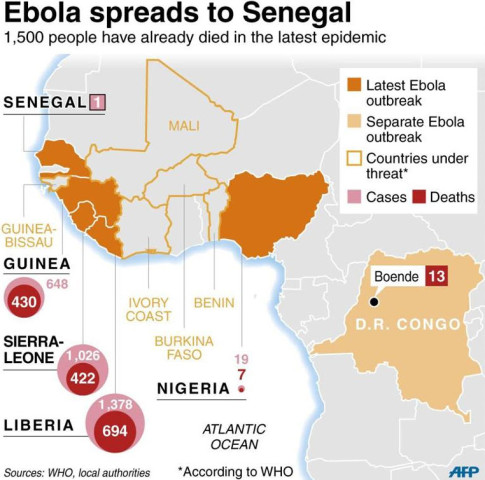– First case of Ebola confirmed in Senegal as spread of deadly virus rapidly accelerates (Natural News, Sep 9, 2014):
A fifth African country, Senegal, has confirmed its first case of Ebola after a young man tested positive for the virus following admittance to a hospital in Dakar, the nation’s capital. The UK’s Telegraph reports that the man, a student, had just gotten back from a trip to Guinea when he fell ill with symptoms, failing to report that he had come into contact with infected individuals back in his home country.
Guinean authorities say the student was immediately put under surveillance but disappeared for three weeks after that. He later emerged and was placed under medical care, with tests confirming that he had become infected with the deadly illness.
Read moreFirst Case Of Ebola Confirmed In Senegal As Spread Of Deadly Virus Rapidly Accelerates




